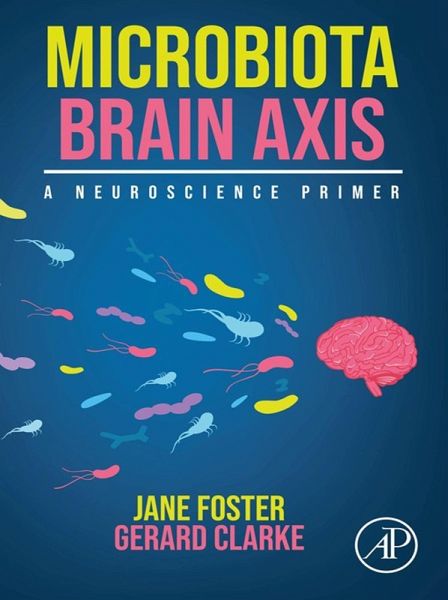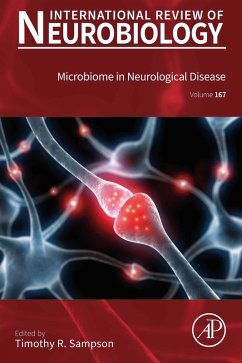
Microbiota Brain Axis (eBook, ePUB)
A Neuroscience Primer
Versandkostenfrei!
Sofort per Download lieferbar
80,95 €
inkl. MwSt.
Weitere Ausgaben:

PAYBACK Punkte
40 °P sammeln!
Microbiota Brain Axis: A Neuroscience Primer provides neuroscience researchers with a comprehensive guide on how to conduct effective microbiota-brain research, understand the appropriate methodologies, and collect and analyze microbiota data. The book begins with an introduction to the importance of the microbiota-brain communication in development and how microbiota impact neurodevelopmental disorders, mental health and neurodegeneration. In addition, the book discusses advances in microbiota analysis tools and techniques for neuroscience related research. - Reviews the many approaches to ma...
Microbiota Brain Axis: A Neuroscience Primer provides neuroscience researchers with a comprehensive guide on how to conduct effective microbiota-brain research, understand the appropriate methodologies, and collect and analyze microbiota data. The book begins with an introduction to the importance of the microbiota-brain communication in development and how microbiota impact neurodevelopmental disorders, mental health and neurodegeneration. In addition, the book discusses advances in microbiota analysis tools and techniques for neuroscience related research. - Reviews the many approaches to manipulating the microbiota in animal studies - including the use of germ-free animals, antibiotics and diet - and covers the strengths and limitations of each - Outlines available microbiota research tools, such as 16S sequencing and shot-gun metagenomics - Provides a comprehensive guide to analyzing microbiota-related data and the many choices for bioinformatics
Dieser Download kann aus rechtlichen Gründen nur mit Rechnungsadresse in A, B, BG, CY, CZ, D, DK, EW, E, FIN, F, GR, HR, H, IRL, I, LT, L, LR, M, NL, PL, P, R, S, SLO, SK ausgeliefert werden.













